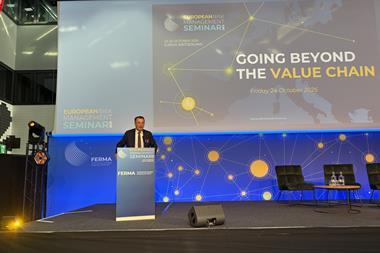Speaking at a panel at Airmic Fest, experts panellists discuss how their firms have adapted to the changes wrought by Covid-19 and the impacts it could have on businesses operations in the future
Tuesday 22 September 2020
10:00: Session: Wellbeing and trust – two positive unintended consequences of the coronavirus pandemic
Businesses across the globe have been in fight or flight mode, battling to adapt their operations to cope with the new ways of working as a result of the Covid-19.
Many businesses have successfully weathered the storm thus far, and leadership teams are now looking forwards to see how they can adapt their working practices for the future.
At the Airmic Fest virtual conference, experts gathered to discuss what that future might look like and what it might mean operations and risk management.
The panellists said that the sector has responded well to the crisis, and highlighted two unintended consequences that could have significant positive impacts for employees.
The first trend was around trust. As businesses have been forced to embrace working from home – often overnight as new rules have come in – it has become clear that it is possible for employees to be productive when working remotely.
Steve Collinson, head of the UK people team at Zurich said: “Most organisations have had to put their money where their mouth is and say we trust you to do the right thing and to be able to work to get the job done, however is best suited to you. Trust has been absolutely critical and I think people would say that they feel trusted and empowered by their leaders to work in the way that is best for them right now.”
As employer trust builds and workers feel valued by management, many organisations are looking at the possibility of making home work more permanent. One such company is Fujitsu, which has introduced new rules around flexible working.
Cathy Mulligan, VP and regional CTO, Fujitsu North and West Europe explained: “We’ve always had a flexible work policy within the European part of the business, and the announcement from Fujitsu was focused on the Japanese market.
“I think it was a big shock because Japan still very much has a culture of ‘you’re in the office as early as possible then you don’t go until your boss has left’. But actually, it was part of this thing about trust, and they have realised actually this is a much more flexible, modern way to work.”
Of course, some employees have found working from home challenging and there are many who would welcome a return to the office. So while businesses are embracing flexibility, the panellists argued it is important to make sure that businesses have processes in place to support staff who need or want to return to work.
Kate Roy, chief operating officer at Willis Towers Watson said: “This is where it is important to start to look at your colleague base through a different lens because the different roles that people fulfil will respond differently.
“Technologists who code would probably be thankful if you never did come back into an office because they found their ideal environments in their bedroom but some of our sales colleagues and client management are missing the interaction. There is not a one size fits all.”
The second key trend was a renewed focus on the wellbeing of employees, both physical and mental. And without the usual touchpoints of office life, businesses have had to find new ways of supporting staff, whether that’s battling loneliness, or making sure that a home-working set-up has enough lumbar support.
Collinson said: “Wellbeing has been more critical to organisations … than we’ve seen before and actually people managers who would have perhaps been sceptical about whether wellbeing is an organisational responsibility have engaged with the topic because their people have needed them too.”
In partnership with






















No comments yet